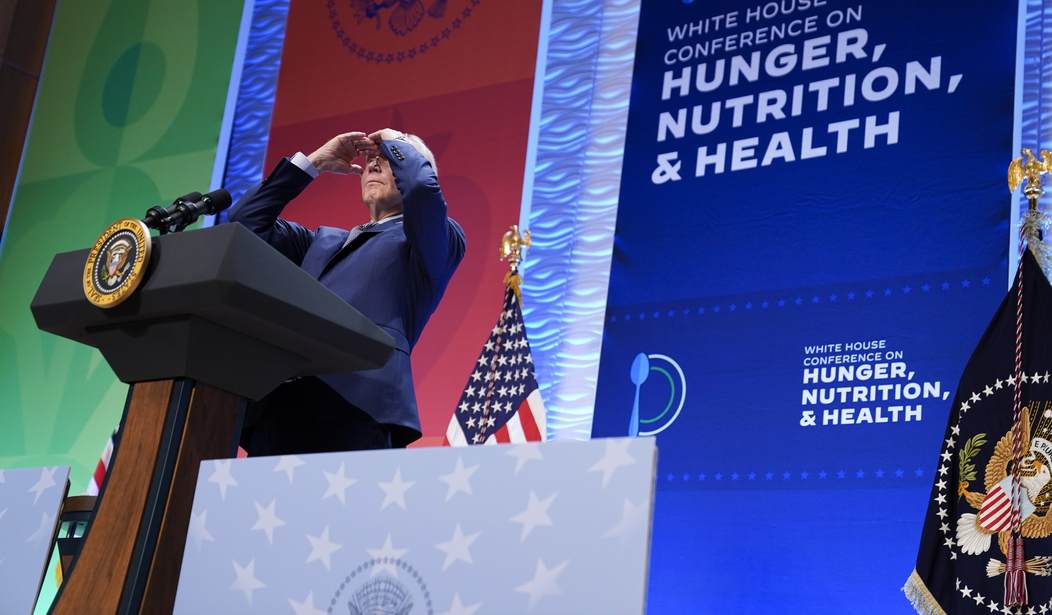The opinions expressed by contributors are their own and do not necessarily represent the views of RedState.com.
You may have heard that March is Women’s Month, but it’s also National Nutrition Month. In a video posted to the Twitters, the Health and Human Services Secretary Rachel Levine drones on about the fake holiday, while assuring Americans (and the world) that the Biden administration is considering the high costs of obesity, while keeping in mind that it impacts some of the Democrats’ most cherished constituencies:
This #NationalNutritionMonth, learn how you can do your part to support healthy people, healthy communities, and a healthy nation for all. pic.twitter.com/Lb1iOmtWzN
— ADM Rachel Levine (@HHS_ASH) March 1, 2023
Now, a new report is highlighting obesity on a global scale. The World Obesity Federation just released a report that supposedly looks 12 years into the future–all the way to 2035–and sees sky-rocketing obesity rates on the horizon around the world:
More than half the world’s population will be classed as obese or overweight by 2035 if action is not taken, the World Obesity Federation warns.
More than four billion people will be affected, with rates rising fastest among children, its report says.
Low or middle-income countries in Africa and Asia are expected to see the greatest rises.
The report predicts the cost of obesity will amount to more than $4tn (£3.3tn) annually by 2035.
A chart in the report lays out the dire forecast. It also shows that American men are likely most at risk (#2), while they think U.S. women will fall far out of the top 10 (25th place). Way to go, ladies!
@Richard Simmons: Where are you? pic.twitter.com/B2CBEK2V0M
— philopol (@val_muchowski) March 3, 2023
Naturally, the people who wrote the report make sure that no one’s feelings are hurt by the science:
The report emphasises that its acknowledgement of the economic impact of obesity “is in no way a reflection of blame on people living with obesity”.
And what does the group suggest is to blame for the impending health crisis, pointing to possible solutions? (Emphasis mine)
Reasons include trends in dietary preferences towards more highly processed foods, greater levels of sedentary behaviour, weaker policies to control food supply and marketing, and less well-resourced healthcare services to assist in weight management and health education.
There it is, right in the last two reasons. Now, to be fair, controlling the food supply could be read as working on the supply chain, which doesn’t sound too bad. But there’s the word “marketing” in there, too. I’m sure I don’t have to tell you that more government policies that seek stronger controls of food marketing is not conservative. In fact, it sounds like socialism and especially ominious.
The report also suggests governments look into bolstering (government) “healthcare services” to fix things. And “well-resourced” is a fancy way of saying “someone needs to throw more taxpayer money at this problem.” To that, I say, thanks, but no thanks.
The other problem is that the wrong actions are being suggested, for doctors or other health professionals advising those who are overweight/obese and trying to get healthy. It’s not just “processed foods.” It’s sugar and processed carbohydrates. And when people are ill, they’re going to be sedentary. More details on the problem are the only way this can turn around.
One last thing–and it’s something you likely won’t be surprised by; the World Obesity Federation is presenting its report to the UN on Monday. If there’s any group besides the federal government that’s more useless at finding real solutions to problems (especially when it involves health), it’s them.













Join the conversation as a VIP Member